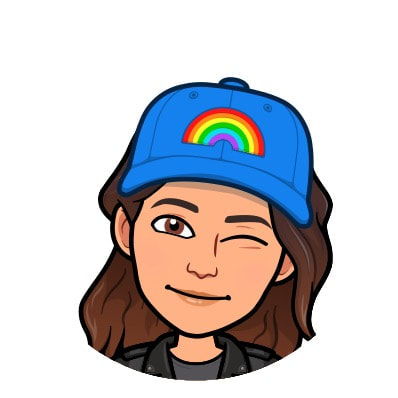|
Many LGBTQ+ circles hate to admit it, but navigating non-binary identities in a binary gendered society can be difficult and confusing - especially if you are new to the whole idea of non-binary genders. Not only is understanding a non-binary gender identity difficult but showing support and acceptance can also be a challenge. First and foremost, someone else’s gender is not up for debate, even if they appear to be a certain gender to you. Gender presentation is not the same as gender identity, and androgyny is not equivalent to being non-binary. Binary people can be androgynous and non-binary people can be feminine or masculine presenting. So, even if you do not understand someone’s identity, that is perfectly alright so long as you respect it. Since every non-binary person and gender identity is different, I will solely focus on ways to respect a person’s non-binary identity and show acceptance and support of non-binary people in general. Like many other transgender people, non-binary people coming out may have a different name or set of pronouns that they identify with. If someone comes out to you as transgender or non-binary and does not tell you anything about pronouns - it is always best to ask. In fact, one common practice that provides great social support for trans and GNC (gender non-conforming) people includes introducing yourself with your pronouns and asking for others’. Many non-binary people (myself included) use they/them pronouns, but not all non-binary people use them, and not all people who use they/them pronouns are non-binary. Some non-binary (as well as binary trans and cis) people use multiple pronouns as well, so be sure to understand what that person’s specific pronouns are. Use their chosen name and correct pronouns, even when they are not around. When I first came out, my mother struggled to understand they/them pronouns. As someone who learned English as a second language, and who’s native tongue, Tagalog, does not have gendered pronouns, it was confusing for her to use plural pronouns for a singular person and she did not understand the significance of the gender of pronouns. Hearing the people that love me most refer to me by the wrong pronouns for years, and feeling like I could not do anything about it, hurt so much. Part of the pain came from knowing that she did love and accept me, but I could not get her to support me in the way I needed. Only now that I have finally been able to get her to understand why it mattered so much do I see how heavy of a burden it was all those years. One thing my family was able to do for me was start using gender neutral language when referring to me. Instead of referring to me as their “daughter” I was their “child.” My mom even changed her silly embarrassing pet-name for me from her “baby-girl” to her “baby-doll.” Using gender-neutral language in all settings is one small and easy act to support any non-binary person who could be listening. Many people with binary genders tend to not realize it, but most - if not all - of society is structured around binary gender. It is evident in products for sale, language, bathrooms, and is only heightened in media and entertainment. Non-binary people live in a world that refuses to acknowledge that we exist. So by simply using phrases that make room for us, that alone makes a big difference. A word of caution: though it is important to support and acknowledge people’s gender identities, it is even more important to not out them. I have heard many stories of people trying to show their support and accidentally outing someone to a person they had not come out to. Coming out is a process, and just because a person came out to you does not mean they are out to everyone. Sometimes, someone who may seem out and proud in public needs to hide their identity at home, and sometimes it’s just the opposite. To ensure mishaps don’t occur, ask them if they are out in general and if there are specific people they are or aren’t out to. Finally, the most important thing to do is to affirm their identity. When I first came out to my family, they never acknowledged the fact that I am non-binary - at least not that I was aware of. Since there was a fight when I came out, I assumed their lack of acknowledgement meant that they did not support me, and was surprised to hear years later that they accepted me all along. Don’t let this happen to the people in your life. Don’t only tell them you accept their identity when they first come out, remind them regularly. Not too much to the point of obsession, but don’t let them forget or doubt your support. In a world where most people refuse to acknowledge we exist, each person counts. Best of luck!
0 Comments
Your comment will be posted after it is approved.
Leave a Reply. |
Categories
All
|
|
|
Teenagers With Experience is an online organisation created to provide teenagers worldwide with an online platform to share their own experiences to be able to help, inform and educate others on a variety of different topics. We aim to provide a safe space to all young people. You can contact us via email, social media or our contact form.
|


 RSS Feed
RSS Feed
